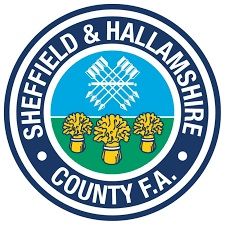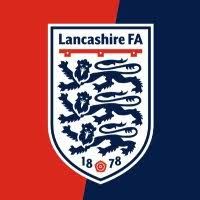The North English Game -
The Fall and Rise

On this site the increasingly obvious, pivotal role Sheffield played from 1857 and in the decade of 1860s and early 1870s in the development of football, both through its own Sheffield Rules and of the Association game, has already been explored and will continue to be so. And so has and will be the, if not quite collapse from within and fall, that cause it to spend the last half of the same 1870s and most of the 1880s in first at least a stutter and then only gradual recovery.

And now we turn our attention to the other area of England that would have a similar role but by fifteen years later, i.e. North-West Lancashire. The Lancashire Football Association was formed in 1878, by clubs mainly from the that area of the county. But football there, outwith the folk-game and not yet the Association variant, had been around since at least 1865. That was the year when a quartet of mill-owners sons aged from eighteen to twenty-two came together to create what might be called the "Blackburn-Rules", said to be a mixture of those from Harrow and the Eton Field Game.
And the arrival of Harrow's rules was to replicated in 1870 in Darwen with the formation there of its cricket and football club and also in 1871 at Turton, north-east of Bolton. There John Kay, sixteen years old and fresh from the school, literally teamed up with twenty-six year old Blackburn-born, local national teacher William Dixon to form a club that inevitably require working men from the village to give the numbers. And it seems to have been the first to have in 1874 turned to the Association game, although there is a hint of a game in November1873 to them more or less and between Blackburn Ramblers and Blackburn Brookhouse. Church by Accrington would do the same and that year too, as would Bolton Wanderers. Darwen would not do so until 1875 as also in Blackburn there were the foundations of Rovers and Witton. Eagley F.C., in a village just a short distance from Turton also came into being that same year.
In fact 1874 in the quadrilateral formed by Blackburn, Padiham, Bacup and Bolton no fewer than eighteen had been formed by 1876 and twenty-six clubs existed in 1879 with Bacup and Oswaldtwistle being the last. And as confirmation In 1878 at a meeting in a pub at Bromley Cross just south of Turton twenty-eight or twenty-nine clubs had been founder-members of the Lancashire Football Association and twenty-four had come from the area.
So where does the much discussed Scottish influence in Lancashire's North-East fit in? The answer is that, whilst Bacup was formed by two Scottish brothers, the Rankines, said to have played for Vale of Leven but more likely to have don so for Renton, the story of its arrival had probably been got back-to-front. In 1875 at the age of just twenty-one Darwen-boy William Kirkham, a textile colour-mixer to trade, seems to have taken himself north to Glasgow for work. It was also the year Partick F.C. had been formed, one of half-a-dozen or so clubs that had sprung up that year and Kirkham, with no known indication of previous involvement in Lancashire, joined. In fact in that summer he had been a founding member, was in the team and with Darwen/Partick already playing their first cross-border fixture on 1st January 1876 was the obvious link.
It would be the first of seven such trips South with Partick only losing for the first time in 1880 by when at least two of its players has been recruited to the club and one, Fergus Suter, to the English game more permanently. Both has made their moves in the winter of 1877, James Love first as he turned twenty-one himself and faced business bankruptcy at home, with Suter following on having lost his work in Glasgow as a stonemason and also about to reach the then age of maturity. The stories of both men have now been uncovered and told in detail. (See: Scottish Sports History). That, one way or another, is certain, although curiously it was not actually against the London FA rules until 1882.
And at this point it might have been expected that there might have been something or a flood or at least a strong trickle of Scots player being atracted to the Lancashire game. In fact if anything the numbers dropped until starting to climb once more in 1882 as Preston started to recruit, its clubs being formed from 1880, and the Bolton area, with a flurry of clubs founded in 1878, followed suit just as the other teams in the quadrangle also stepped up their demand. In 1884 Preston had fourteen Scots recruits on its books, fifteen in Bolton and the Calder Valley from Blackburn to Burnley, founded in 1882, had thirty-one.
So the question is why and there are perhaps three reasons. Between 1876 and 1884 team numbers had increased two-fold and a half. In 1876 there had been no North-West teams in the FA Cup, in 1877-8 only Darwen, it in 1878-9 reaching the quarter-final only to be beaten by the eventual winners, Old Etonians, away in a second replay. But by 1884-5 there were twenty-four and Blackburn Olympic had already taken the trophy. And then there was the proselytising of James Gledhill. In the Darwen team on January 1st 1879 he was, aged twenty-four, there as a centre-forward. And he was there again in 1880 as Darwen won the Lancashire Senior Cup with Suter at full-back. Born in 1854 in Manchester with an English father , a coach-builder, and a Scottish mother Gledhill had been brought up by Preston, was a Student Teacher, had gone to London to study medicine, there playing football, and in 1878 returned north and joining Darwen, where also newly-arrived Suter and Love were team-mates.
However, his next move took him to Glasgow to train as a Surgeon and there he turned out for Partick, after which on returning to Lancashire in 1883, now aged almost thirty and perhaps his playing days over, he began to tour Lancashire lecturing on how he thought the game should be played. Given his time in Scotland in the first golden era of the game North of the Border it is unlikely to have been any other way than ours.
Back to the SFHG Home page